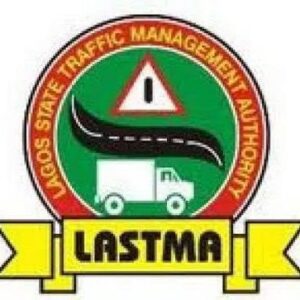
NRC, SEDC to partner on rail modernization in South East
By Seun Ibiyemi
The Managing Director and CEO of the Nigerian Railway Corporation (NRC), Dr. Kayode Opeifa has highlighted the crucial role of the Southeast Development Commission (SEDC) in the Federal Government’s mission to expand and modernize the country’s railway infrastructure.
This was the key message delivered during a recent visit by top railway officials and stakeholders.
The visit underscored the importance of the SEDC in ensuring that development efforts reach all states, particularly in the southeastern region.
Opeifa emphasized that the NRC has historically been at the heart of Nigeria’s economic growth, tracing back to the colonial era when the first rail lines were built to facilitate trade and commerce.
He stressed that the government is prioritizing the rehabilitation and expansion of railway networks to enhance mobility, reduce the cost of transporting goods, and improve economic productivity.
“NRC has successfully constructed over 1,000 kilometers of new or refurbished rail lines in the past decade, marking a significant milestone in railway development.
“The railway system is integral to Nigeria’s transportation network. Without an efficient railway, our economy cannot reach its full potential,” the NRC MD/CEO stated.
He further noted that revitalizing the railway sector would lead to a significant reduction in the cost of goods, benefiting businesses and consumers alike.
Among the key highlights of the visit was the discussion on ongoing projects, including the rehabilitation of the eastern corridor railway line, which is expected to restore connectivity between key cities in the southeast and other parts of the country.
Also addressed concerns about the availability of railway assets, affirming that the NRC is actively working to repurpose outdated infrastructure and improve service delivery.
Additionally, the SEDC’s role in human capital development was emphasized, with many southeastern professionals contributing to the growth of the railway sector. The presence of high-ranking railway officials from the region further underscored the commitment to regional inclusion and national integration.
With plans underway to enhance railway services across Nigeria, the NRC remains committed to ensuring that railway development aligns with national economic goals.
The federal government’s push for modernization, increased efficiency, and expanded railway connectivity is expected to propel Nigeria’s GDP growth and bolster trade both domestically and internationally.
Also speaking, the Managing Director, Southeast Development Commission (SEDC), Mr Mark Okoye outlined an ambitious roadmap to transform the region into Nigeria’s preferred investment destination by 2030.
Leading the delegation, Okoye and a board member of the SEDC, Princess AdeJoke Adebayo Chukwuma, expressed gratitude to the NRC’s Managing Director and CEO for accommodating their visit on short notice.
Okoye emphasized the significance of the partnership in aligning with President Bola Ahmed Tinubu’s Renewed Hope Agenda and the broader United Nations Industrial Development Organization (UNIDO) objectives for national growth.
“For over five decades, the Southeast region has advocated for a structured development framework. Under this administration, in less than a year, we have witnessed historic progress with the establishment of the SEDC,” she said.
The commission, which was inaugurated on February 11, has identified five key sectors to drive the region’s economic expansion from $40 billion to $200 billion within ten years. These sectors include agriculture, industrialization, technology, creative economy, and tourism, with infrastructure serving as the enabling foundation.
A major highlight of the visit was the SEDC’s focus on high-impact, region-wide infrastructure projects.
Okoye stressed that the commission seeks to ensure project sustainability by making them bankable, reducing reliance on government funding, and encouraging private-sector participation.
“Our goal is to develop a seamless business climate across all five states in the region. We want consistency in ease of doing business policies, laws, and investment regulations to attract both domestic and international investors,” she added.
He added that the commission intends to establish an investment fund driven through an investment corporation to finance long-term projects, ensuring financial independence within a decade.
The delegation also highlighted security and investment climate enhancement as immediate priorities, recognizing that economic transformation cannot thrive without a stable environment.
The collaboration with the NRC is expected to play a crucial role in the region’s master planning, which includes multi-modal transportation systems, industrial clusters, and agro-processing zones.
Okoye noted that successful models, such as Lagos State’s partnership with the NRC, could serve as a blueprint for similar initiatives in the Southeast.
Reflecting on the commission’s first 50 days, Okoye outlined key achievements, including engagements with the Senate, House of Representatives, state governors, organized private sector groups, and the diaspora community.
He also announced the launch of a volunteer system, which has already attracted over 2,000 sign-ups from Nigerians worldwide who are eager to contribute technical expertise to the region’s development.
The SEDC’s efforts have also drawn attention from various stakeholders, including the Indigenous People of Biafra (IPOB), who have pledged to track the commission’s expenditures to ensure transparency and accountability.
Okoye reaffirmed the commission’s commitment to fostering development partnerships and urged the NRC to consider the SEDC a key stakeholder in its future projects.
“We are here on a plucking mission to identify and maximize opportunities for regional growth,” she said.
With a clear strategic direction and growing stakeholder engagement, the Southeast Development Commission is poised to drive economic transformation in the region, ensuring sustainable progress and enhanced national integration.




